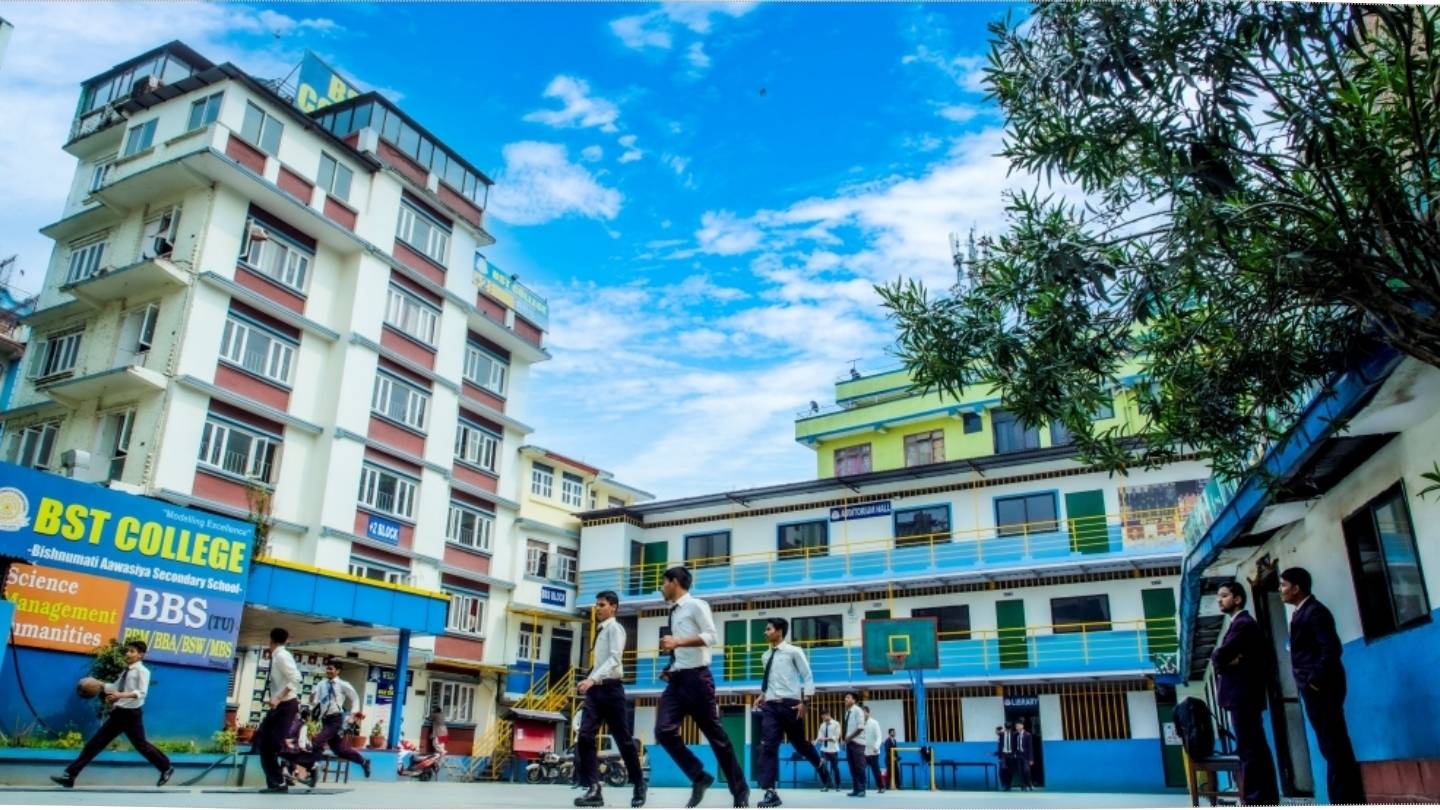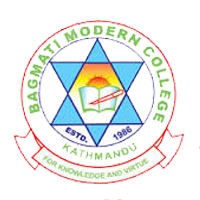Overview
Ten Plus Two (+2) Management at BST College, Gongabu, Kathmandu
Plus Two (+2) Management at BST College, Gongabu, Kathmandu, runs under the National Examinations Board (NEB). The stream lists compulsory Nepali and English with Social Studies or Mathematics, then one of several three-subject options such as Accountancy–Economics–Business Mathematics or Accountancy–Economics–Business Studies.
BST College states that for Management-oriented subjects in Grade XI, applicants must have passed SEE or equivalent from a recognized institution. The college document does not set an extra GPA bar for this group; the focus is a valid pass and subject choice during admission.

Highlights
-
NEB +2 Management with clear compulsory subjects and six optional sets that combine Accounting, Economics, Business Mathematics, Business Studies, Computer Science, Hotel Management, Tourism, and Marketing.
-
Eligibility for Management subjects: SEE pass (no additional GPA band specified in the college sheet).
-
Admission opens after SEE; forms are issued from the information desk and students follow the notified entrance/admission steps.
-
Support systems on campus: computer lab, hotel management lab, library, auditorium, transport, and sports.
-
Merit support: GPA-linked fee waivers, entrance topper scholarship, and provisions for needy and deserving students.
Curriculum Details
Subject structure (Grade 11–12)
Compulsory group
-
Nepali
-
English
-
Social Studies or Mathematics
Optional combinations (choose one set)
-
Optional-I: Accountancy, Economics, Business Mathematics
-
Optional-II: Accountancy, Economics, Business Studies
-
Optional-III: Accountancy, Economics, Computer Science
-
Optional-IV: Accountancy, Economics, Hotel Management
-
Optional-V: Accountancy, Tourism & Hotel Management
-
Optional-VI: Accountancy, Marketing, Hotel Management
Students confirm one three-subject set during admission. These options reflect the stream’s focus on accounting records, business fundamentals, numerical reasoning, hospitality basics, or computing support for business.
What each option prepares you for (practical view)
-
Accounts–Economics–Business Mathematics: best fit for students who enjoy numbers and plan to continue with BBS, BBM, CA Foundation, or banking entrance tests.
-
Accounts–Economics–Business Studies: solid base for general business programs where case writing and concept clarity matter.
-
Accounts–Economics–Computer Science: useful when you want coding or database exposure early while keeping a business track.
-
Accounts–Economics–Hotel Management / Tourism: relevant for hospitality, tourism, and service operations pathways.
-
Accounts–Marketing–Hotel Management: suited to students aiming at sales, events, retail, or hospitality marketing in Kathmandu’s service economy.
Objectives
-
Help you build a clear base in accounting records, business concepts, and applied numeracy that will carry into bachelor-level study.
-
Introduce sector exposure through hotel management, tourism, or computer applications where selected.
-
Strengthen writing in Nepali and English so answers, reports, and presentations remain clear and organized.
-
Support informed program selection after Grade 12 by linking classroom work with practical assignments and campus resources.
Scope
Students from +2 Management at BST typically compete for BBS, BBM, BBA, BIM, BHM, BTTM, and general BCom/BBS seats across Kathmandu and other cities. The subject set chosen in Grade 11–12 signals your leaning: numerical routes (e.g., Business Mathematics) often suit accounting/finance tracks; hotel management or tourism options help if you expect to move into hospitality or travel. The college’s resource profile—computer lab, hotel management lab, library, and an auditorium for talks—helps students complete internal practicals and presentations on schedule.
Learning Outcomes
By the end of Grade 12 Management, students generally can:
-
Prepare and interpret basic accounting records, journals, ledgers, trial balance, and simple financial statements.
-
Apply introductory economic ideas to common business situations, including demand, supply, cost, and market behavior.
-
Use Business Mathematics for interest, discounting, ratio analysis, and data tables that appear in classroom tasks and unit tests.
-
Draft short business notes, meeting minutes, and reports in Nepali and English with correct structure and references.
-
Present a mini case or survey report to classmates using slides or a poster, making use of the library and ICT lab.
Skill Development Modules
-
Accounting practice: journal entries, cash book, bank reconciliation, depreciation methods, inventory basics.
-
Quantitative thinking: percentages, indexes, sequences, and business problem steps; spreadsheet work for tabulation.
-
Business communication: agenda, minutes, memos, and concise summaries in Nepali and English.
-
Hospitality basics (where selected): food production/service demonstrations in the hotel management lab; event support for campus programs.
-
ICT for business: document formatting, spreadsheets for statements, introductory database or coding tasks tied to the Computer Science option.
-
Library use and research habits: source scanning, note cards, and short reviews to prepare for bachelor-level assignments.
Teaching Methodology
Teaching follows regular classroom periods with written assignments and periodic tests. The auditorium hosts orientations, guest sessions, and student presentations when scheduled. The library supports reference reading and quiet study. The computer lab and hotel management lab are used for option-specific practicals. The college’s admission booklet lists these facilities and describes how they support learning activities over the session.
Admission Requirements
Eligibility
-
SEE or equivalent pass from a recognized institution for Management subject groups. The college sheet does not state an extra GPA threshold for this group.
Process
-
Admission opens after SEE.
-
The information desk issues forms and instructions.
-
Applicants submit the form with required documents to the college office and follow the entrance/admission steps as notified by the administration.
Documents to prepare (typical for publication notices)
-
SEE grade sheet and character certificate.
-
Passport-size photos.
-
Copies of citizenship/ID (as applicable).
-
Migration/transfer documents if requested.
Career Opportunities
-
Accounting and finance support: accounts assistant, billing, cashier roles in retail, trading houses, or cooperatives.
-
Sales and marketing support: front-office, sales trainee, brand promoter, and customer relations.
-
Hospitality and tourism: food service, events support, travel operations, and guest relations for students who choose Hotel Management/Tourism options.
-
Office administration: documentation, data entry, and coordination in schools, clinics, NGOs, and small firms.
-
Pathways to higher study: BBS, BBM, BBA, BIM, BHM, BTTM, or professional routes such as CA/ACCA after meeting their separate entry rules.
Scholarships and Financial Aid
BST College publishes GPA-linked fee waivers and additional provisions:
-
GPA 3.9–4.0: admission, annual, and tuition fees fully waived.
-
GPA 3.8–3.9: admission 100%, annual 50%, tuition 75% waived.
-
GPA 3.6–3.8: admission 100%, annual 50%, tuition 50% waived.
-
GPA 3.4–3.6: admission 50%, annual 50%, tuition 30% waived.
-
GPA 3.2–3.4: admission 50%, annual 40%, tuition 25% waived.
-
GPA 3.0–3.2: admission 40%, annual 30%, tuition 20% waived.
-
GPA 2.8–3.0: admission 30%, annual 20%, tuition 10% waived.
-
GPA 2.4–2.8: admission 20%, annual 20%, tuition 10% waived.
-
Entrance topper: full scholarship.
-
Need-based support: available for deserving students under college policy.
Why Choose This Course?
-
Multiple Management combinations published by the college, including options that touch hospitality or computing—useful for early exposure to Kathmandu’s service and business jobs.
-
Facilities that match stream needs: computer lab for business tasks, hotel management lab for demonstrations, library for references, and an auditorium for talks and events.
-
Admission timing right after SEE, with a clear application route through the information desk.
-
Scholarships that reward performance and support need, as listed in the college booklet.
Conclusion
+2 Management at BST College offers clear subject paths and practical support for students who plan business degrees next. The stream lists compulsory subjects, six optional sets, a straightforward admission window after SEE, and a scholarship scheme that recognizes grades and merit. Campus resources—computer lab, hotel management lab, library, and auditorium—anchor classroom work with hands-on practice and events. Students can keep options open for BBS, BBM, BBA, BIM, hospitality, tourism, or administrative roles while they build study habits for bachelor-level coursework.
FAQ
1) What are the compulsory subjects in +2 Management at BST College?
Nepali, English, and Social Studies/Mathematics.
2) Which optional sets can I choose?
Six options that combine Accountancy with Economics plus one of Business Mathematics, Business Studies, Computer Science, Hotel Management, Tourism & Hotel Management, or Marketing.
3) What is the eligibility rule for Management subjects?
SEE pass from a recognized institution; the booklet does not add a GPA bar for this group.
4) When does admission start and how do I apply?
Right after SEE results. Collect the form from the information desk, submit documents, and follow the entrance/admission steps notified by the college.
5) What facilities support Management learning?
Computer lab, hotel management lab, library, auditorium, transport, and sports as listed by the college.
6) Are scholarships available?
Yes. GPA-based fee waivers, a scholarship for the entrance topper, and support for needy and deserving students are included in the policy.























